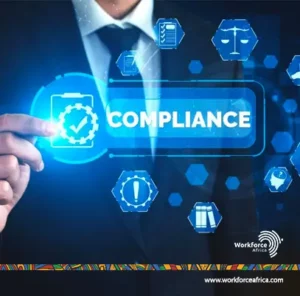A good hiring strategy necessarily employs pre-employment background checks. But what really are these checks and why are they necessary?
Picture this …
After a long search, you’ve finally found an applicant that fits the profile. He’s got talent, skills, experience, and by the looks of it, the personality too. So naturally, you’re excited and ready to press the launch button.
But just before you make the final call, there’s one question you must ask and answer accurately: Is the candidate whom he claims to be?
Are You Hiring Blindly?
In an ideal world, every candidate in the talent market would be a skilled and reputable individual.
But, unfortunately, after nearly two decades of hiring well over a hundred thousand applicants, we know without a doubt that while some of the candidates are a perfect fit, others have the potential to destroy not only the employee ecosystem of the business they join but the reputation of the organisation.
The fact is that hiring right is a tough formula to master. A lot can quickly go wrong when the wrong candidate is brought into a business.
Without the proper checks in place, it is virtually impossible to tell the good from the bad in this day and age.
Today, it’s all too easy for job seekers to get a professional resume writer to put together a killer resume or get an interview coach to walk them through the process of acing the interview even when they don’t have the requisite skills to get the job done.
What is worse, that impressive candidate may have defrauded his last company or may have a history of drug abuse or violence.
Finding out too late that an employee concealed specific facts could have a long-term, damaging impact on other employees, your customers, and your bottom line.
As an employer, one of your most significant responsibilities is to ensure that everyone you hire is committed to creating and sustaining a healthy workplace culture.
Because not only is it pivotal for your employees to be confident that they’re working alongside people they can trust, it is also crucial to the well-being of your organisation.
Ultimately, there’s just no way to tell if that prospective employee is whom she says she is without the use of professional pre-employment background checks.
Why Pre-Employment Background Checks Are Important

The purpose of the background check is to get a thorough and clear picture of the personnel you’re bringing into your company.
Do they have the right blend of competence and character?
- Will they blend in well with your culture?
- Will they get along with their co-workers?
- Do they have tendencies that might be detrimental to the welfare of other employees?
- Can they be trusted with the company’s resources or sensitive information?
In addition to this, a comprehensive background check could also expose:
- Forged Certificates
- Doctored Grades
- Nonexistent Addresses
- Unreliable Guarantors/Referees
- Unavailable Claimed Work History
- Integrity Issues
Getting your hiring right the first time will save you time and money and preserve the ecosystem of your organisation because a business that fails to maintain a safe working environment may not be in business for very long.
The only way to protect your organisation from the host of potential problems that a wrong hire can bring is to do your due diligence before bringing a new hire on board.
Consequently, here are five types of pre-employment background checks crucial for reducing the risks associated with hiring new candidates.
5 Types of Pre-Employment Background Checks
Naturally, the degree of sensitivity of each role will determine how comprehensive the check will be. The five checks to choose from include:
1. Criminal Record Verification
While the essence of criminal background check is not to witch-hunt, every employer will be wise to do a criminal record check for all potential employees.
Not only is a criminal background check essential to ensure the safety of your current employees and your customers, but it is also crucial to ensure your financial security.
Over the years, we have had surprising discoveries from a criminal history check. For example, we have encountered applicants with impeccable skills and experience but a criminal history of violent behaviour towards other employees.
In other instances, we’ve seen top talent that have been convicted of financial crimes.
The fact is that screening employees’ backgrounds before hiring is a critical step toward reducing the risk of workplace violence. Where there have been convictions for violent crimes, it is a red flag.
Drug screening also plays a role in reducing on-the-job injuries. We, therefore, recommend that a criminal history background is non-negotiable for all roles.
2. Education/Academic Qualification Verification
Unfortunately, it has become too easy these days for individuals to lie about everything, including their educational qualifications.
If a candidate says they have a degree in engineering, accounting, architecture et cetera., an educational verification service will confirm that degree.
Hiring someone with false credentials will undoubtedly affect your business because if an employee doesn’t have the experience or education he claims to have, he may not be fit to do the job.
And that, in turn, may interfere with your team’s performance when the job in question goes undone or when others have to correct the mistakes made by the unfit individual repeatedly.
3. Driver’s License Verification and Driving History
If you plan on giving a prospective employee access to a company vehicle, you should consider a driving history check and license verification.
If a candidate has a history of traffic offences, it’s something you should be informed about before handing over the keys of your company car to him. This becomes even more essential when the individual will be driving other employees.
To skip a driving history check, in this case, is to risk being guilty of “negligent hiring”, a legal term that describes an employer’s liability for an incident caused by an employee when the employer knew (or should have known) that the employee posed a risk.
For example, a company hires an executive driver who gets into an accident that causes an injury which leads to a lawsuit. One of the first questions a plaintiff’s lawyer is likely to ask you is, “Did you run a background check before hiring the driver?”
4. Previous Employment History Check
When it is not possible to predict the future and tell whether an applicant will be a perfect fit for the job, it is possible to tell for sure if the person you’re looking to hire will be an asset or a liability.
There’s a lot of vital information available to you about applicants if you’d but ask their previous employers.
A pre-employment background check will not only help to corroborate (or disprove) an applicant’s claims of relevant experience and job responsibilities, it will also help to determine crucial information about the character of the individual you’re going to bring into your organisation.
For example, only by verifying from a previous employer can you know if a candidate is a troublemaker or not, a hard worker or not, a competent employee or not and so on.
In addition, by running an employment history verification, you will know the truth about your candidate’s former job title and the responsibilities she held in her previous jobs.
You will have access to the dates of employment, the date of job termination, the reason for termination, e.t.c if you deem such information necessary.
In Summary
Though background checks aren’t cheap, they’re an investment worth making. At its core, a pre-employment background check of all your intending employees can save you time and money in the long run.






